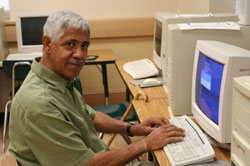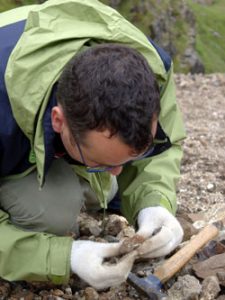
Career Zone
Career Quest
 So, what do you want to be when you “grow up?” An actor? An astronaut? How about becoming a geoscientist or a photogrammetrist, or even a petroleum engineer? Curious about what roles these scientists play in the natural gas industry? The links below contain information on these and other interesting career choices in the world of Energy Underground.
So, what do you want to be when you “grow up?” An actor? An astronaut? How about becoming a geoscientist or a photogrammetrist, or even a petroleum engineer? Curious about what roles these scientists play in the natural gas industry? The links below contain information on these and other interesting career choices in the world of Energy Underground.
What’s your outlook?
 Are you interested in science and mathematics? Try your school counseling office to chart a career path in the natural gas industry – there might be brochures or flyers from different colleges or training centers.
Are you interested in science and mathematics? Try your school counseling office to chart a career path in the natural gas industry – there might be brochures or flyers from different colleges or training centers.
About 500 colleges and universities in the United States offer some kind of specialized training in the fields described in this section of Energy Underground. Here are some additional sources that may be available at a local library: Barron’s Profiles of American Colleges, updated yearly; and the College Handbook, updated periodically.
If you see a career choice listed in this section and wish to obtain more information, check your library reference section for a comprehensive guide to professions called the U.S. Occupational Outlook Handbook. This guide not only lists thousands of different jobs, but lists the characteristics of each job, suggests various working conditions, details qualifications for getting a particular job and what one might expect to earn.
The Handbook also contains information about related occupations and predictions for the future growth possibilities in a particular field, hence the term “outlook” in the title!
Make it an exploration
 Ask your counseling office, public library or local college library about access to software or database programs where you can answer a number of questions about your interests, and receive a customized printout of possible occupations.
Ask your counseling office, public library or local college library about access to software or database programs where you can answer a number of questions about your interests, and receive a customized printout of possible occupations.
Not all careers in the world of Energy Underground require college, but many do. Check out information from companies such as the American College Testing Service and the Educational Testing Service. They offer career exploration programs and both provide information on how to prepare for certain professions and how to set personal action plans to achieve career goals. Check with school counselors, public or college libraries for possible access to these services.
Many fields working together
 Just how do we make a stubborn sandstone lense give up its treasure of natural gas? It takes certain skills, a lot of expertise, and specialists from virtually every possible field of mathematics and science.
Just how do we make a stubborn sandstone lense give up its treasure of natural gas? It takes certain skills, a lot of expertise, and specialists from virtually every possible field of mathematics and science.
Engineers and scientists help locate natural gas deposits, plan the drilling and construct the platforms. Petroleum geologists use their knowledge of the earth and its subsurfaces to search for oil and gas reserves. Seismologists study the results of soundings taken from gas industry experts as they force sound waves deep into the earth, looking for reflected pockets of possible oil and gas.
Chemists research and utilize computers for modeling and simulation of gas pockets.
Definitely a Team Effort!
 Need land surveyed but can’t get there from here? Call on a mapping scientist like a photogrammetrist who uses aerial photos to make drawings. These scientists are knowledgeable in using the Global Positioning System (GPS). The GPS uses the geosynchronous orbit of dozens of satellites to send radio signals. These radio signals are received on the earth’s surface by special instruments. The instruments receive signals from several satellites at one time and help scientists draw the most accurate picture possible. Geophysical prospecting surveyors take all this information and analyze the data to help them in their quest for natural gas.
Need land surveyed but can’t get there from here? Call on a mapping scientist like a photogrammetrist who uses aerial photos to make drawings. These scientists are knowledgeable in using the Global Positioning System (GPS). The GPS uses the geosynchronous orbit of dozens of satellites to send radio signals. These radio signals are received on the earth’s surface by special instruments. The instruments receive signals from several satellites at one time and help scientists draw the most accurate picture possible. Geophysical prospecting surveyors take all this information and analyze the data to help them in their quest for natural gas.
All these careers and many more work together to bring nature’s energy source, natural gas, to the surface for the convenience and well-being of society.
For additional information, check out the Junior Engineering Technical Society site, www.jets.org, or the Accreditation Board for Engineering and Technology, http://www.abet.org/.
